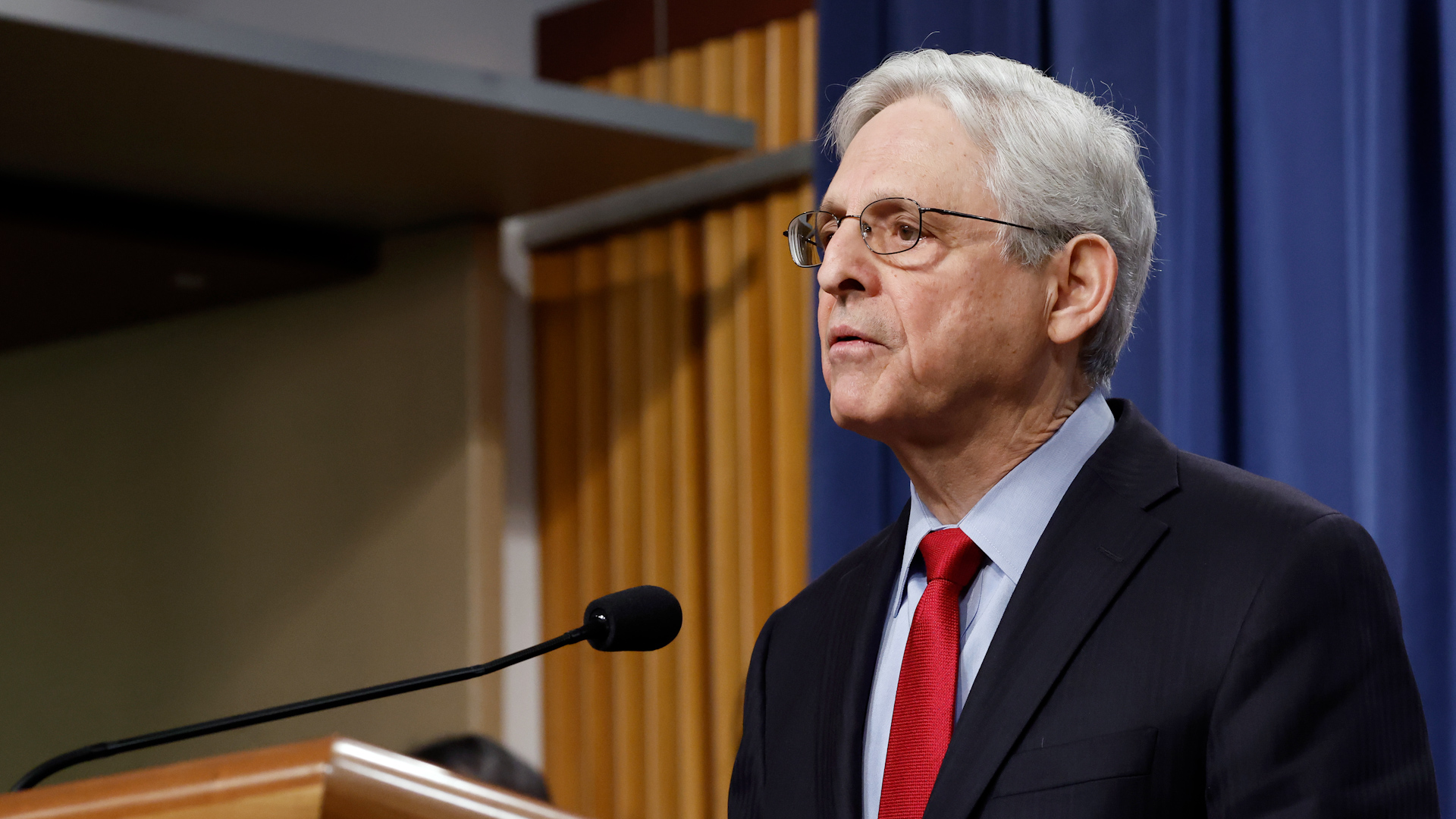
Justice Department sues Apple, claims company holds iPhone monopoly
By Lauren Taylor (Anchor), William Jackson (Producer), Jake Maslo (Video Editor)
This report was created with support from enhanced software.
Media Landscape
See how news outlets across the political spectrum are covering this story. Learn moreBias Distribution
Left
Untracked Bias
The Justice Department announced Thursday, March 21, that it has filed a significant antitrust lawsuit against Apple Inc., accusing the technology behemoth of illegal anti-competitive practices aimed at maintaining its smartphone market monopoly and inflating profits. According to the lawsuit, Apple is alleged to have manipulated application development rules and features of its iPhones — including iMessage and Apple Wallet — to suppress competition and elevate pricing.
US Justice Department Sues Apple in Antitrust Case Over iPhone https://t.co/UggoubqoXS
— Mark Gurman (@markgurman) March 21, 2024
Attorney General Merrick Garland highlighted that Apple’s conduct not only contravened federal antitrust laws but also unjustly burdened consumers with higher costs.

Download the SAN app today to stay up-to-date with Unbiased. Straight Facts™.
Point phone camera here
In a detailed accusation contained within an 88-page complaint, the government criticizes Apple’s imposition of restrictions on multifunctional “super apps,” its manipulation of messaging functionalities between Apple and non-Apple devices, and its monopolization of tap-to-pay features exclusively for Apple Wallet.
“Our case focuses on Apple’s core monopoly, which is the iPhone,” Assistant Attorney General Jonathan S. Kanter said. “We have focused on a pattern of conduct over a decade that Apple has engaged in order to reinforce its monopoly power by excluding rivals by excluding technologies by stifling innovations that would threaten Apple’s stranglehold on its monopoly power.”
The lawsuit, joined by 15 states and the District of Columbia, seeks judicial intervention to prohibit Apple from continuing its alleged anti-competitive activities and to mandate actions necessary to restore competitive conditions in the markets affected by Apple’s purported unlawful conduct.
Unbiased news.
Directly to your inbox. Free!
Learn more about our emails. Unsubscribe anytime.
By entering your email, you agree to the Terms & Conditions and acknowledge the Privacy Policy.
Responding to the allegations, Apple defended its business practices, arguing that the lawsuit fundamentally misunderstands the nature of its operations and threatens the company’s ability to produce highly integrated technology products.
This legal challenge is part of a broader scrutiny of major tech companies by the Justice Department’s antitrust division, which has previously targeted Google with lawsuits alleging monopolistic business practices during both the Trump and Biden administrations.
[LAUREN TAYLOR]
THE JUSTICE DEPARTMENT HAS FILED A MAJOR ANTITRUST LAWSUIT AGAINST APPLE , ACCUSING THE TECH GIANT OF ENGAGING IN ANTI-COMPETITIVE BEHAVIOR TO PROTECT ITS SMARTPHONE MONOPOLY AND BOOST PROFITS.
ACCORDING TO THE SUIT, FILED IN NEW JERSEY, APPLE ALLEGEDLY MANIPULATED APP DEVELOPMENT RULES AND IPHONE FEATURES, SUCH AS IMESSAGE AND APPLE WALLET, TO LIMIT COMPETITION AND CHARGE HIGHER PRICES. ATTORNEY GENERAL MERRICK GARLAND SAIDAPPLE’S ACTIONS NOT ONLY BROKE FEDERAL LAW BUT ALSO FORCED CONSUMERS TO PAY MORE.
MERRICK GARLAND
U.S. ATTORNEY GENERAL
“For most of the past 15 years, Apple has collected a tax in the form of a 30% commission on the price of any app downloaded from the App Store as well as on in-app purchases. Apple is able to command these fees from companies of all sizes.”
[LAUREN TAYLOR]
AMONG THE ISSUES RAISED IN THE GOVERNMENT’S 88-PAGE COMPLAINT WERE APPLE’S RESTRICTIONS ON “SUPER APPS,” MESSAGING FUNCTIONALITY, AND THE EXCLUSIVE USE OF TAP-TO-PAY WITH APPLE WALLET.
JONATHAN S. KANTER
Assistant Attorney General
“Our case focuses on Apple’s core monopoly, which is the iPhone. We have focused on a pattern of conduct over a decade that Apple has engaged in order to reinforce its monopoly power by excluding rivals by excluding technologies by stifling innovations that would threaten Apple’s stranglehold on its monopoly power.
[LAUREN TAYLOR]
FIFTEEN STATES AND THE DISTRICT OF COLUMBIA JOINED THE FEDERAL GOVERNMENT’S SUIT..
IN RESPONSE, APPLE DEFENDED ITS PRACTICES, ARGUING THAT THE LAWSUIT MISUNDERSTANDS ITS BUSINESS AND COULD NEGATIVELY IMPACT ITS ABILITY TO CREATE INTEGRATED PRODUCTS.
Media Landscape
See how news outlets across the political spectrum are covering this story. Learn moreBias Distribution
Left
Untracked Bias
Straight to your inbox.
By entering your email, you agree to the Terms & Conditions and acknowledge the Privacy Policy.
MOST POPULAR
-
 Getty Images
Getty Images
Judge allows CNN lawsuit potentially worth billions to continue
Read15 hrs ago -
 Reuters
Reuters
It’s a bird, it’s a plane, it’s the first video of Alef Aeronautics’ flying car
Watch 2:1316 hrs ago -
 Getty Images
Getty Images
Democrats in Congress receive lowest approval rating in Quinnipiac poll history
Watch 2:5917 hrs ago -
 Getty Images
Getty Images
AG Bondi reviewing Epstein documents for release, could hold client list
Watch 1:4818 hrs ago




